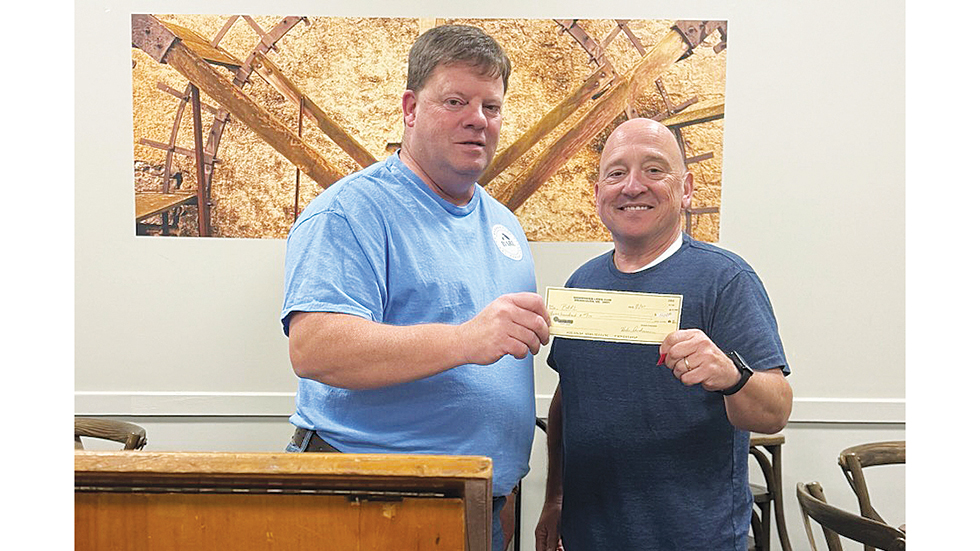Lincoln ranks 38th in state in healthy county survey
Published 7:00 pm Thursday, March 21, 2013
In Mississippi’s healthiest county, many residents have easy access to bicycle paths and walking trails. In the least healthy county, there are few places to exercise and people on limited budgets might have to drive long distances to buy fresh fruit and vegetables.
New rankings from the Robert Wood Johnson Foundation and the University of Wisconsin Population Health Institute show fast-growing and relatively prosperous DeSoto County, just south of Memphis, Tenn., is the healthiest county in Mississippi, while rural and low-income Quitman County, in the north Delta, is the least healthy.
In the Southwest Mississippi area, Lincoln County ranks well into the top 50 percent among the state’s 82 counties. Lincoln came in at number 38 in the survey. Ranking highest among area Southwest Mississippi counties was Amite, coming in at 17.
Trending
Copiah County ranked behind Lincoln, at 55 in the survey, followed by Walthall, at 59; Franklin, at 60; and Adams, at 66.
Other area counties and their rankings included: Lawrence, 67; Pike, 73; and Jefferson, 74.
This is the fourth year for the survey assessing nearly every county in the United States. The groups look at health behaviors such as smoking, obesity, physical inactivity and sexually transmitted infections. They also look at the percentage of uninsured residents and social and economic factors such as education levels and unemployment rates.
The five healthiest Mississippi counties, in order, are DeSoto, Lamar, Lafayette, Rankin and Madison. The five least healthy, starting at the bottom, are Quitman, Coahoma, Wilkinson, Holmes and Claiborne.
One Mississippi county, Issaquena, was not ranked because of its small population size and limited information available about health indicators, said state Department of Health spokeswoman Liz Sharlot.
Valmadge Towner, owner of the Dining Room restaurant in Marks, said Wednesday that Quitman County has few gyms or health clubs, and people often must drive long distances to buy fresh produce. He said there’s only one grocery store in Marks, so people rely on convenience stores for much of their shopping. The nearest supermarkets are 20 miles to the west in Batesville or 20 miles to the east in Clarksdale.
Trending
Towner, 43, is a lifelong Quitman County resident and he acknowledged with a laugh that his restaurant isn’t a place people go for low-fat, low-calorie dishes.
“We are a splurging restaurant,” Towner said. “We sell soul food. We are not health conscious.”
The restaurant serves lunch seven days a week, featuring baked chicken, fried chicken, hamburgers and vegetables. Towner said there are a few grilled items on the menu. “They don’t sell as well, for some reason,” he said. “I guess people are just creatures of habit.”
In DeSoto County, the city of Hernando has miles of sidewalks and bicycle paths. Since 2001, the city has required developers to put sidewalks in all new neighborhoods or in all older neighborhoods that are being improved.
“We are not at all about forcing people to be healthy,” Mayor Chip Johnson said Wednesday.
But, if someone wants to walk or ride their bike and they can’t do it safely near their homes, “I haven’t done my job,” Johnson said.
Some health statistics, according to the new rankings:
• 11 percent in the U.S. residents younger than 65 had no health insurance, compared to 21 percent in Mississippi, 19 percent in DeSoto County and 22 percent in Quitman County.
• 14 percent of U.S. children lived in poverty, compared to 32 percent in Mississippi, 16 percent in DeSoto County and 50 percent in Quitman County.
• 70 percent of adults age 25-44 in the U.S. reported having some college education, compared to 56 percent in Mississippi, 63 percent in DeSoto County and 43 percent in Quitman County.
• 13 percent of adults in the U.S. reported that they’re smokers, compared to 24 percent in Mississippi, 24 percent in DeSoto County. No figure was reported for Quitman County.
• 25 percent of U.S. adults were obese, compared to 36 percent in Mississippi, 33 percent in DeSoto County and 40 percent in Quitman County.
• 21 percent of U.S. adults, 20 and older, reported no physical activity during leisure time, compared to 33 percent in Mississippi, 30 percent in DeSoto County and 35 percent in Quitman County.
• In the U.S., there were 92 cases of the chlamydia, a sexually transmitted disease, for every 100,000 people. In Mississippi, the rate was 722 cases per 100,000 people. In DeSoto County, it was 465 per 100,000 people. In Quitman County, it was 1,143 per 100,000 people.





